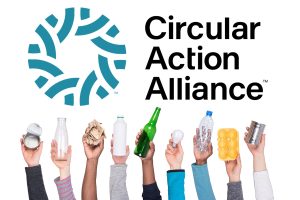
The California Chamber of Commerce has announced its support for the Circular Action Alliance (CAA) to become California’s Producer Responsibility Organization in accordance with SB 54 (Allen; D-Santa Monica).
The CalChamber led the business coalition last year in negotiating to remove a costly $9 billion a year tax and plastic packaging ban initiative from the ballot.
The recycling law enacted in place of the ballot initiative marked a pivotal moment in California’s efforts to revamp its recycling program, introduce an Extended Producer Responsibility (EPR) program specifically targeting single-use packaging and avoid the largest tax increase in the state’s history.
The EPR program established under the new law requires businesses using single-use packaging to take greater steps to reduce plastic packaging and recycle all single-use packaging rather than sending the material to landfills.
One of the very first compliance obligations for the business community is to form and join a Producer Responsibility Organization, also known as a PRO, that will assist businesses with reducing waste and increasing recycling of their packaging.
Need for a PRO
California’s new recycling law requires the Department of Resources Recycling and Recovery (CalRecycle) to approve one PRO to develop a recycling plan with which all businesses selling single-use packaging will need to comply.
With applications due to CalRecycle by January 1, 2024, the CalChamber believes the Circular Action Alliance is best positioned to be approved and serve the diverse business community with their compliance obligations.
CAA is a 501(c)(3) nonprofit producer responsibility organization formed in 2021 in response to an increasing number of states, including California, mandating EPR for packaging.
Earlier this year, CAA became the first PRO in the United States to be approved for administering an EPR program for paper and packaging in Colorado. CAA also was approved as the single nonprofit PRO on the State Producer Responsibility Advisory Council in Maryland. CAA is currently actively seeking approval in Oregon and Maine.
As an increasing number of states mandate EPR for packaging, companies will rely more and more on the assistance of a PRO to navigate the evolving landscape of recycling regulations across the country. This need is particularly pronounced in California, where noncompliance with laws like SB 54 can result in hefty fines and potentially packaging bans for noncompliance.
Unifying Framework
CAA’s vision of unifying the PRO framework nationwide as companies contend with EPR in multiple states will provide significant benefits to the business community, including increased efficiencies, lower operating costs and more consistent guidance.
The CalChamber believes that the Circular Action Alliance, with its technical expertise, producer toolkit and established infrastructure, is California’s top choice to serve as the state’s PRO.

